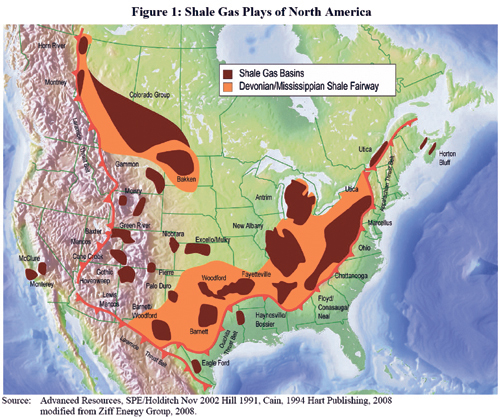In what may be the nation's next boomtown, the ground is, literally, booming.
Residents here in northeastern Ohio are receiving up to $5,000 an acre from energy companies that lease their land -- plus monthly royalties. But they have also experienced at least 11 earthquakes since last March, state officials say.
Scientists say
the region's quakes are likely tied to the burgeoning oil and gas industry.
At 3:05 p.m. on New Year's Eve, the people of Youngstown, Ohio, felt their homes shake.
"I thought a jetliner crashed into the side of my house," said resident Jim Bunosky. He was one of 300 to 400 local residents who attended a community meeting last week to discuss the quake's origin, which some believe is linked to a local well used for wastewater disposal from oil and gas drilling.
The Ohio Works well, operated by D&L Energy Group, has been injecting the so-called brine -- mainly saltwater and chemicals -- 9,180 feet into the ground since November 2010.
The Ohio Department of Natural Resources says it is among the deepest of such wells in Ohio, and believes it may have been drilled over an unknown fault. The agency explains that an earthquake can be triggered by fluid lubricating a geologic fracture that has both stored energy and the potential to move.
There are 176 operating disposal wells in Ohio, but Ohio Works is the only one that scientists connect to the region's quakes.
John Armbruster, a seismologist affiliated with Columbia University, was brought in to study the Youngstown quakes and says there's a "strong case" they are being caused by the well. Seismographs installed by Armbruster pinpoint the epicenter of the
magnitude 4.0 New Year's Eve earthquake as within one kilometer of the bottom of the Ohio Works well.
D&L, in a statement, denied any "conclusive link" between the well and the earthquakes.
Industry executives cite a "superb track record" over the decades that these form of disposal wells have been used, and call the recent earthquakes in Youngstown an anomaly.
"There's 180 of these wells across the state and the track record is excellent," said Thomas Stewart, executive vice president of the Ohio Oil and Gas Association.
Meanwhile, the state natural resources agency is awaiting a study commissioned by D&L and further information from experts before determining what's triggering the quakes.
However,
the state did close four not-yet-operational wells within a 5-mile radius of Ohio Works, due to concerns over possible seismic activity.
Earthquakes have been tied to so-called injection wells in other states. For example, Arkansas enacted a permanent moratorium on disposal wells in an approximately 1,200 square-mile area, due to enhanced seismic activity near the Fayetteville Shale.
Ohio issued 36 permits for injection wells in 2011, compared to an average of three to six in prior years, according to the state natural resources agency. The wells are part of a broader economic resurgence tied to the oil and gas industry in the state. Steel company Timken has hired 1,000 workers in Ohio since September 2009 to keep up with the exploding demand.
Lorraine Gutscher-Mulinex was one of those new hires. Formerly a laid-off auto worker, she says, "Many people are being put back to work, not just here at Timken, but all over Ohio."
The state has benefited from the increased wastewater, since it started charging companies to dump it a little over a year ago.
Ohio charges out-of-state companies 20 cents a barrel and in-state companies 5 cents a barrel to deposit waste in the state's nearly 180 disposal wells. Last year, 54% of that waste came over state lines, largely from neighboring Pennsylvania. So far, this has grossed Ohio roughly $1 million.
Don Kreager manages a disposal well in Cambridge, Ohio. His employer, David R. Hill Inc., charges $3 per barrel of wastewater and injects roughly 2,000 barrels a day up to 8,800 feet into the ground. He's seen business increase 50% in the past year and a half, with about one-third of it coming from out of state.
State Representative Bob Hagan is wary of the disposal wells and has called for a moratorium on them across Ohio.
"I've watched the lights go out in Youngstown, Ohio, in the steel industry," Hagan said. "I've also watched the polluted river, a town that has nothing but brown fields. I want to move carefully."
But the industry and the state insist this is the safest way to bury the waste -- and are making money off of it. That will keep these trucks rolling in and out of the Buckeye State.
And what happens when these wells fills up? "Drill another well a couple thousand feet away," Kreager says.
http://money.cnn.com/2012/01/17/news/ohio_earthquakes/index.htm




